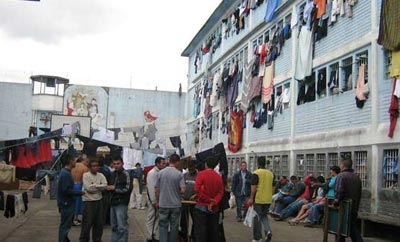Police in Colombia have dismantled a prison-based extortion gang that operated in numerous prisons and cities across the country, demonstrating just how coordinated and sophisticated such networks have become.
Colombia’s anti-extortion and kidnapping police, the Gaula, have arrested 16 women and 5 men they say were running an extortion gang known as “Los Presidios,” reported El Tiempo.
The gang operated out of at least eight prisons and in cities spanning the breadth of the northern half of the country, from Cucuta on the Venezuelan border to Cartagena on the northern coast.
According to police, they principally targeted small businesses, transport operators, loan companies and lawyers, identifying potential victims from sources such as business cards, classified advertisements and the telephone directory, and collecting intelligence from family members, other inmates and accomplices.
Gang members would then ring from prison pretending to be members of armed groups such as the guerrillas of the Revolutionary Armed Forces of Colombia (FARC) and demanding items such as weapons and uniforms. When their victims said they could not obtain these, they would demand one-off payments instead, reported El Universal.
Police said 48 victims of the gang have been identified, but they believe up to 500 people were affected.
InSight Crime Analysis
Colombia has long been plagued by extortion gangs operating from prison, which accounts for a significant slice of what by some estimates is a racket worth $1 billion a year.
What this latest case shows is just how sophisticated this practice has become. To coordinate activities across eight prisons, both women’s and men’s, and to operate in so many cities — presumably with accomplices on the outside in each one — demonstrates extremely high levels of coordination.
SEE ALSO: Coverage of Extortion
Sometimes extortion is carried out by imprisoned members of armed groups, but just as often it is common criminals relying on trickery such as Los Presidios. As in this case, prisoners can pretend to be members of armed groups. On other occasions, they have pretended to be family members in trouble.
To tackle prison-based extortion, Colombian authorities have begun blocking cell phone signals in 12 prisons and plan to roll it out to 4 more over the course of this year.
The tactic can prove effective at combating prison-based extortion, although it is not without problems. Blocking signals is not a precise art and will often knock out the signal for residents and businesses around the prison.

